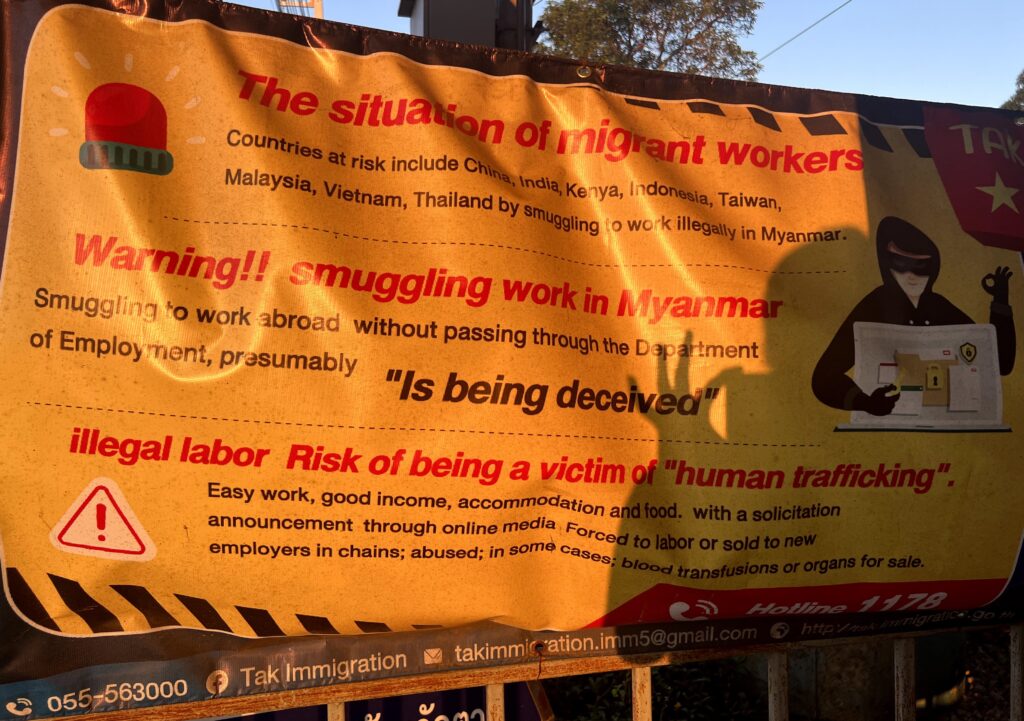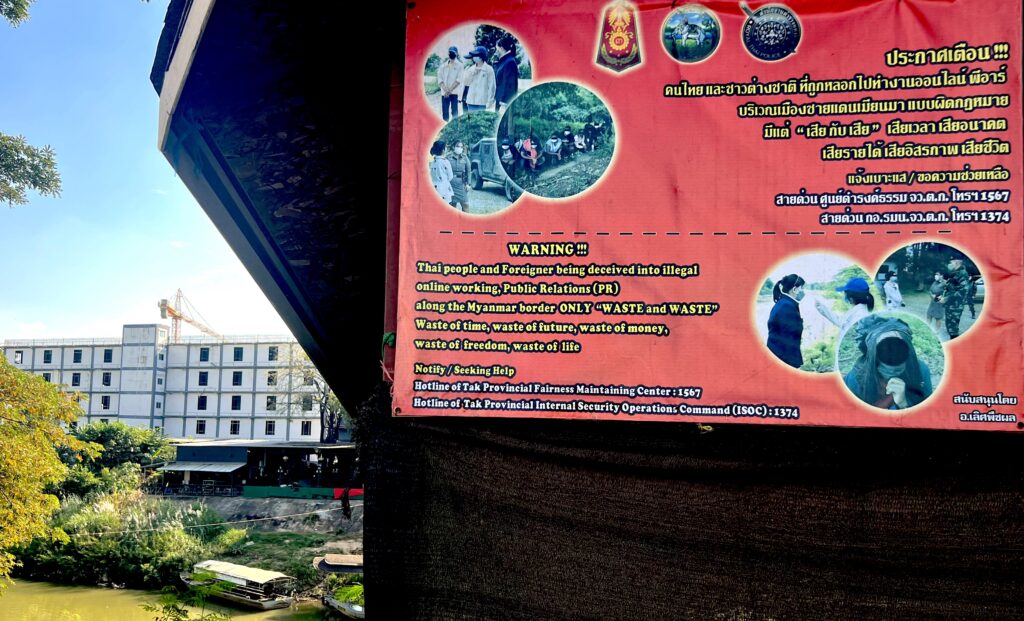From Yangon to Dubai, A Journey Into The Cyber Romance Scam World (III)
By Shwe Nakamwe
David* worked in a scam center in Dubai, targeting European men. His team posed as women on social media, luring targets into investing in fake platforms with promises of love and affection. His experience, a lifeline after fleeing Myanmar’s turmoil post-coup, sheds light on the dark underbelly of migrant exploitation and online scams prevalent in Southeast Asian borders but also in Dubai’s shadowy job market.
Episode III
DUBAI, UNITED ARAB EMIRATES (UAE)
After the second scamming centre was disbanded, amid the hundreds of people who poured out into the street following a sleepless night stressing over passports and wages, David and his friends needed to take stock.
All the people in the local businesses, in the streets, they were so happy for us, you know? They knew what was going on, and when they saw us all leaving, they were smiling at us and stuff.
After the chaos, we all went to stay for awhile on the floor of some friends of ours, to think about what to do next. I started sending my CV around as normal, like I had done before all the scamming stuff, but one of my friends, well, he didn’t have much confidence with speaking English, or being in an international context, he was nervous everyday about communicating with other people. So, he said he was done with Dubai, and went back to Myanmar.
He wasn’t the only one.
After things shut down, the three Shan guys from management at the first compound got in touch to offer us all jobs. They were running operations back in Myanmar, in Hlaingtharyar, and offered us flight tickets to get back. The monthly salary would have been 7 lakh plus a 50,000kyats bonus per customer, with food and accommodation provided.
My friend went back to Yangon to work with them but quit after a really short time – he said he found it frustrating to work with so many beginners. So he found a job offer online – on Facebook – and went off to Myawaddy.
David takes a moment to think.
Then he went to a place I never heard of before – Shwe-something.
Shewekokko is a newly constructed city in the contested, war-torn borderland near Thailand. Bursting with casinos and Chinese currency, it is presided over by the Karen Border Guard Force (BGF), raising huge revenues in partnership with private Chinese enterprise and a shaky agreement with the Myanmar military. With large scale construction and gambling going on, a great many workers come to Shwekokko to seek significantly greater wages than can be found elsewhere in Myanmar.
Since China’s expression of distaste for the scam centres operational near its border in Laukkai and the resulting Operation 1027 offensive, mass relocations have taken place – internationally, and within Myanmar, including many in Karen State.
There were maybe 300 people at my friend’s compound, but he said there were thousands more around the town, including many Chinese who can’t speak Burmese. People from all over Myanmar are working there, but inside the scamming ops, no one is a local.
They were trying to scam guys in the US – working with cryptocurrencies – more like a trading thing. My friend said they were on the news, CNN.
Online scamming operations are a significant driver of the Shwekokko economy. While, like David’s friend, many workers come voluntarily, a great many have been tricked into the business, or trafficked, and are themselves scammed, imprisoned, forced into labour. Widespread reports of abuse and torture have emerged from Shwekokko, with murders also rumoured.
TW // A video of a corpse floating on the river Moei
They get paid by Thai Baht. The full salary is 15,000 per month. He said it’s a very difficult place, not like before. He said he barely got customers.
They work 10pm – 10am and he was allowed to go outside the compound anytime before 3pm. There are a lot of fancy hotels, and restaurants around, and many things are guarded very heavily by armed security.
He had to be in the compound by 3pm – that’s the rule. Security guards would come to make sure the employees were in bed at the appointed time, so they wouldn’t be tired for their work.
But, my friend found out that there are some threats that the Karen National Union wants to strike this place soon, so he took back his ID card from the bosses, and he left, maybe to find another centre like that in the city.
The relocation of scam ops centres is strategic. Thriving in areas with either lawlessness or minimal state interest in enforcement, unstable conditions can quickly trigger international relocations, coordinated by global networks operational on multiple continents.
In 2023, large-scale operations were carried out against these scam networks, resulting in the recovery of citizens from China, Thai, Malaysia, Philippines, Singapore and Viet Nam.
The experiences attested to by David and friends, with their superiors in the UAE returning to Myanmar to open new enterprise, may suggest that newer, smaller players are also entering the global network. Business is booming.


*Name has been changed for safety reasons
A project supported by the 'Staying Resilient Amidst Multiple Crises in Southeast Asia initiative' of SEA Junction in partnership with CMB Foundation.